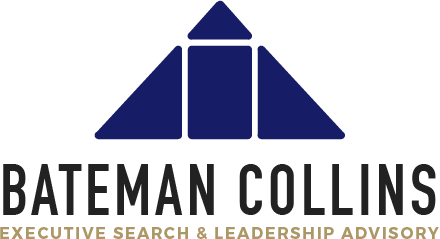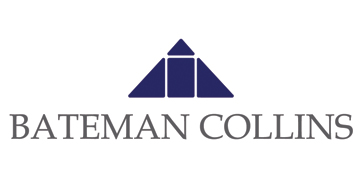On initial inspection 2017 may not seem as momentous when compared to the significant events of 2016. However, 2017 has been a continuation of this unprecedented period of change as economic, political and technological forces continue to transform our world. 2017 has also been a year of adjustment as businesses respond to paradigm shifts resulting from recent events.
Confidence and opportunity as the global economic outlook strengthens
According to the December World Economic Situation and Prospects report the world economy has strengthened, reaching 3% and its highest growth rate since 2011. This is expected to remain stable into 2018. Whilst developing economies remain the main drivers of growth, developed economies are also showing increasing improvement. The US achieved growth of 2.2%, compared to 2.1% in Europe, 3% in Canada and 4.3% across all developing economies. China, East Asia and Africa are the outstanding performers.
The UK has experienced a slowdown in growth, 1.7% in 2017 and projected to be 1.4% in 2018 and 2019. The uncertainty and slower decision-making resulting from the Brexit vote have impacted investment decisions, talent planning and location strategy for many firms. The Bank of England’s Systemic Risk Survey published at the end of November highlighted this trend – the primary risk to the UK financial system was UK political risk (91% of respondents and up 9% since H1 2017), with 90% of respondents explicitly referring to the implications of the referendum to leave the EU. 2017 has been the year of the policy maker and strategist, shaping and responding to these events.
However, despite concerns about Brexit, uncertainty and regulatory demands, most UK start-up entrepreneurs are confident about their prospects in 2018. The Institute of Directors (IoD) recently released the results from a survey of 600 start-up founders, where 83% of entrepreneurs expressed optimism about their business’ prospects for next year.
The war for global talent
The competition for executive talent in 2017 has been fierce, driven by low unemployment and skills shortages. In the U.S. the unemployment level fell to 4.4%, the lowest rate since December 2000. This trend is evident elsewhere with very low unemployment in Japan (2.8%), Czech Republic (3%), India (3.4%), China (4.6%) and the UK (4%). Despite notable exceptions where unemployment remains very high – Greece (20%), Spain (16%), Venezuela (18%) and South Africa (26%) – for the majority of firms across the globe, talent shortfalls will continue to be a significant challenge into 2018.
There will be an advantage for organisations which are inspired and motivated to take advantage of these imbalances, by mobilising high performing talent across national boundaries and on a global scale. Despite political events, globalisation is an increasing force, driven by technology and economic necessity. Organisations with a flexible and progressive agenda to global talent, diversity and inclusion will be best placed to assemble teams and drive performance.
The future diversity of thought
Diversity, inclusion, fairness and equality should be top of the list of priorities for Boards in 2018. Whilst recognising that targets are a step in the right direction, on occasion targets and metrics can be a superficial and narrow tool to measure real effectiveness.
The Davies report which aimed to achieve 25% of women Board members in FTSE100 firms has recently been updated by the Hampton-Alexander review which provides an enhanced target of 33% of women on FTSE 350 Boards and 33% women in FTSE 100 leadership teams by 2020. Whilst progress has been made, currently women account for 27.7% of board members within the FTSE 100 boards, 22.8% within the FTSE 250 and 24.5% within the FTSE 350. For gender diversity, the UK is currently positioned 8th when compared to other countries; France leads the pack – 39.8% of CAC 40 Board members are women. Boards must adopt a progressive agenda and a new inclusiveness to achieve these targets by 2020 or risk failing to grow their markets or acquire the best talent. Millennials and post Millennials or (Generation Z) are informed and discerning when selecting employers, products and services.
Given the pace of change and uncertainty in today markets, Boards must adapt quickly to competing pressures. For organisations to achieve competitive advantage, drive innovation and performance, and ultimately achieve commercial success, company Boards and executive committees must respond and be a balanced reflection of their customers, employees, shareholders and wider community groups. Achievement of gender and ethnic diversity targets is just the first step on this journey.
The holy grail of diversity assessment is true diversity of thought. Most firms are still some way from understanding the benefits that could be derived from tools which analyse different ways of thinking. True success will come from those firms who are able to harness diversity of thought which drives innovation, customer understanding and ability to build collaborative partnerships within and outside the organisation.
Ying and yang of data analytics & cyber risk
The opportunity which lies in the power of data and analytics is well publicised. The significant advances in data and analytics technology in 2017 will continue at pace into 2018. However, given that many firms’ stated priority is talent and people, organisations have been slow to take advantage of the insight derived from talent data. For the most progressive firms, understanding employee motivations, aspirations, values and behaviours and relating these to company cultures and way of working has the potential to ignite talent, enhance collaboration, increase productivity and create enduring high performance.
Data and Cyber will also continue to be a high priority for firm’s due to cyber risk and new data privacy legislation. Cyber-attack was ranked as a significant risk within the Bank of England’s Systemic risk survey. 57% of respondents cited Cyber-attack as a major risk and this is the highest level since the survey began in 2008. Among companies affected during 2017 were Debenhams, Wonga, Three and Reckitt Benckiser. Accenture recently published a report on the cost of cybercrime with the number of successful breaches up by more than 27 percent from 102 to 130. Ransomware have doubled in frequency with some high-profile breaches. 143 million customer records were stolen from Equifax, whilst Reckitt Benckiser estimated that the ‘Petya’ ransomware attack in June would cost the company £100m in revenue.
Innovation and market disruptors drive market transformation
An ongoing trend through 2017 has been the emergence and increasing maturity of market disruptors, most notably in both consumer and financial services. These organisations are highly innovative, ambitious and dynamic.
Within Financial Services these FinTech’s are divided into three subsets:
a. Traditionally Financial Technology firms are technology companies who provide a service to the financial services industry.
b. Digital or mobile platforms offering rapid credit decisioning unencumbered by infrastructure from traditional financial services firms.
c. Innovative technology firms ranging from cryptocurrency, blockchain, open banking, Insurtech, Regtech, PaymenTech or CyberTech firms.
This follows similar innovators within consumer markets where digital innovators and new entrants continue to challenge the hegemony of more established global brands. This trend will continue at pace into 2018.
These innovators are attracting high calibre talent where the opportunity to create a vision, product or service in a dynamic, fast paced and innovative environment is more appealing than navigating traditional corporate structures, where slower decision making and regulatory challenges proliferate. There are often trade-offs however; firms and employees must be prescient to the challenges of making this transition. Most notably, executives must balance strategic capability with a willingness to be hands on in delivery, they may also be required to exchange a big firm salary, bonus and benefit package for longer term equity and job satisfaction.
Redefining the employee value proposition
In the war for Talent, giving employees a holistic and often unique set of benefits helps firms attract high performing candidates whilst improving engagement and retention. This is commonly known as the Employee Value Proposition or EVP. A good EVP should define the relationship between employer and employee. The best will go further and form the entire experience from the company vision, mission, values, behaviours and culture to total reward offering.
Increasingly important is the ability to offer agile or flexible working arrangements to balance the competing demands of work and home, time and a commitment to health and wellbeing, combined with empowering talent to have control over their careers. Firms should promote a positive culture based on shared values and behaviours; within an environment where individuals have a sense of belonging, feel valued, can develop their skills and contribute to interesting projects. The result will be a workforce with a deeper commitment to the organisation and its journey.
For organisations to be successful in 2018, the ability to attract and retain high performing talent will be critical.
Bateman Collins is a boutique Executive Search and Leadership Advisory Consultancy. We have an unparalleled track record, successfully introducing C-Suite and Board level executives, Senior Managers and Strategic Interim Professionals into multinational corporations, mid-cap and start-up firms.
Our mission is to introduce future leaders to progressive organisations. Bateman Collins offers bespoke Leadership Insight, Executive Search and Interim Management Services. These services enable our clients to identify, attract, develop and retain exceptional talent. We help our clients create high performing teams in competitive global markets. Our ambition is to introduce executives with the commercial, organisational and thought leadership capabilities to enhance our client’s performance and transform their markets.




